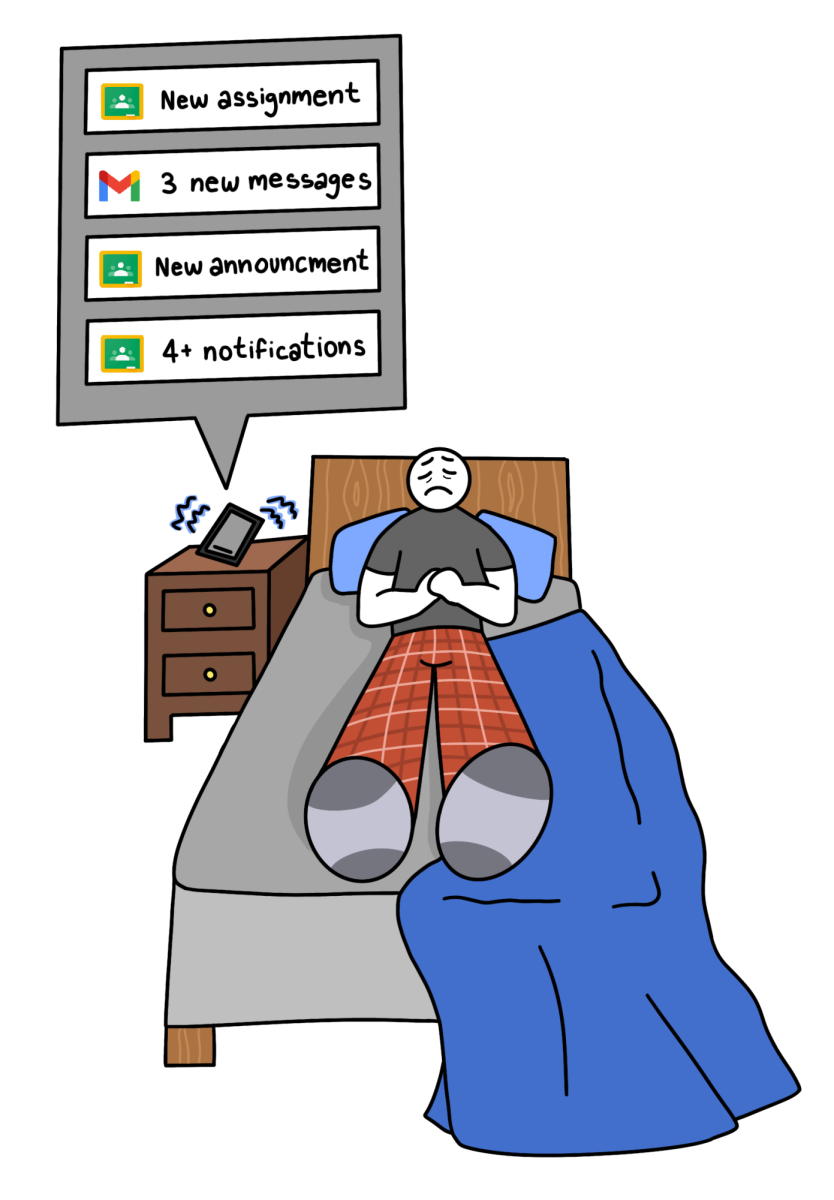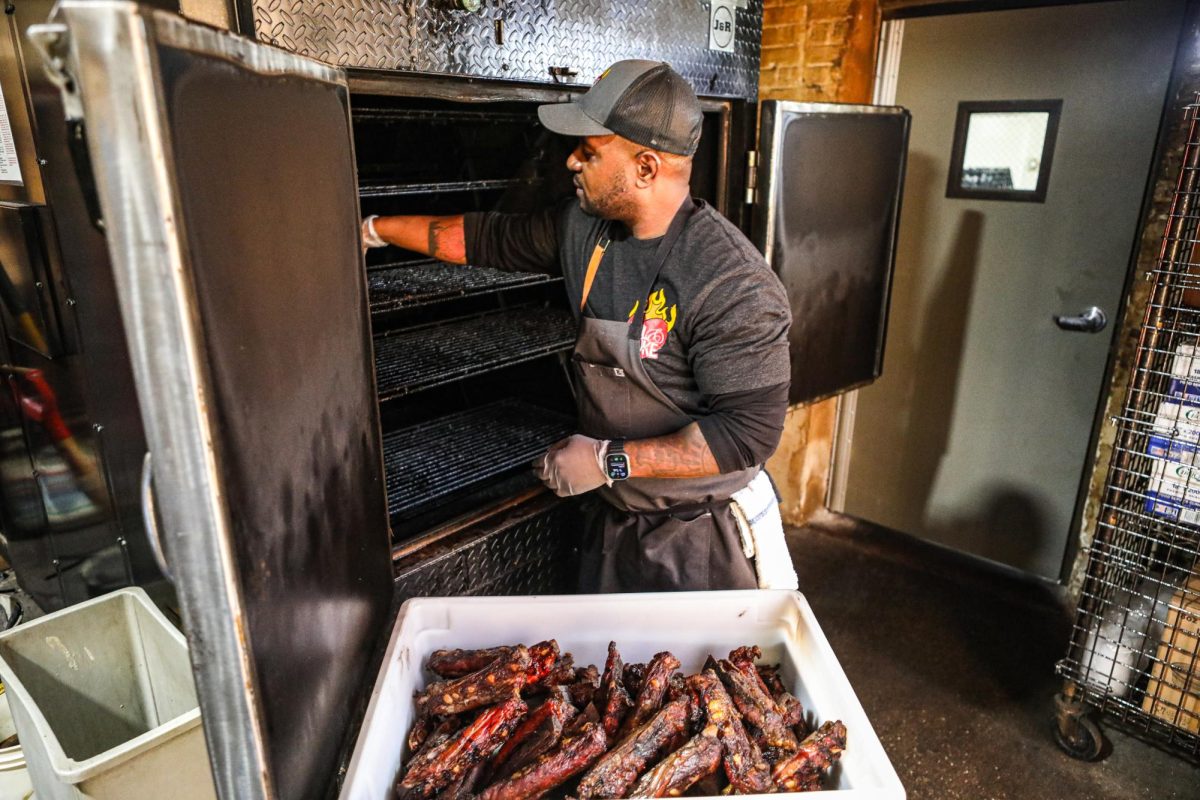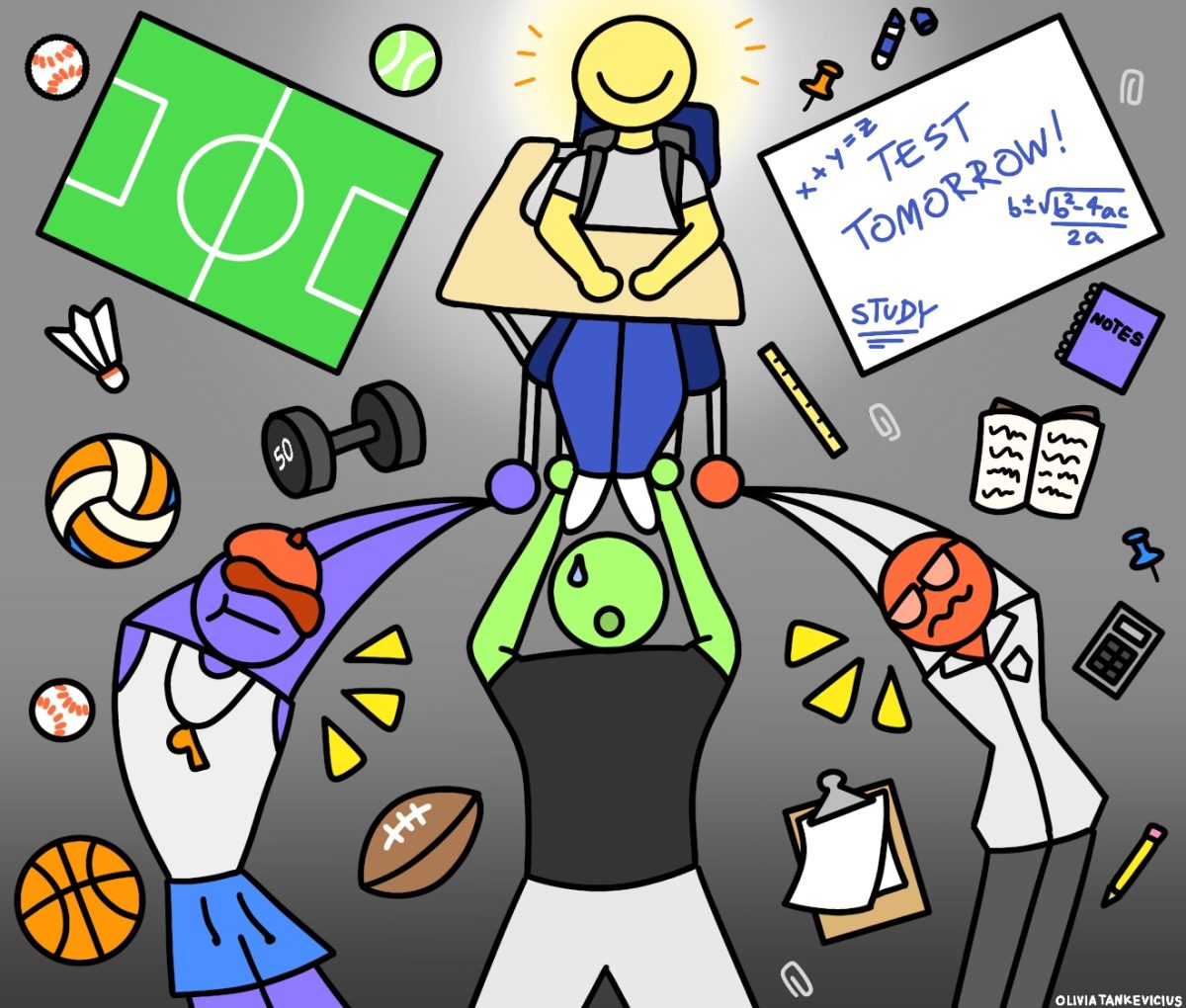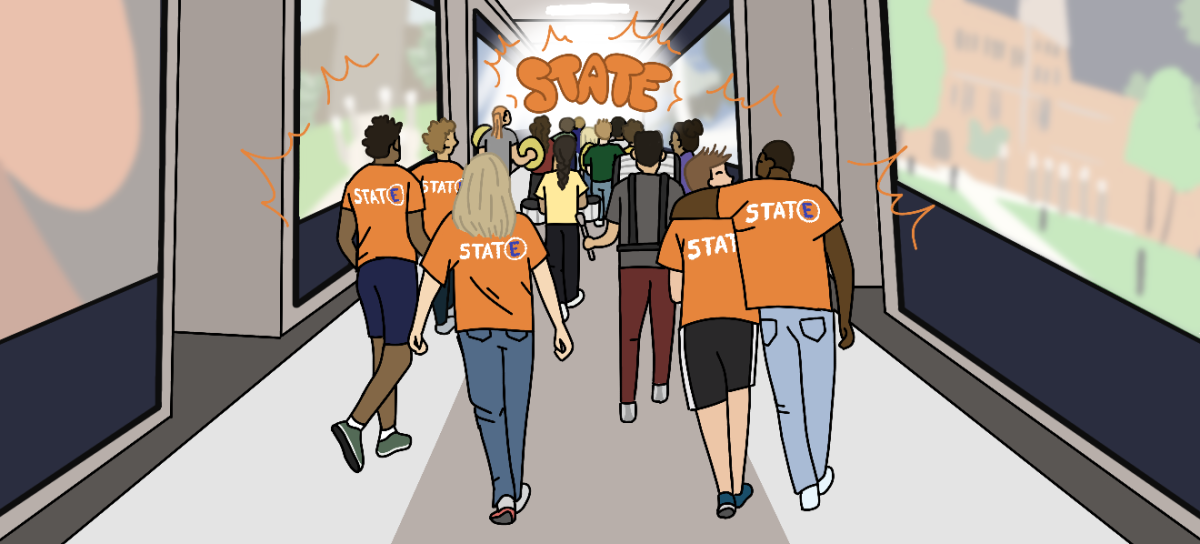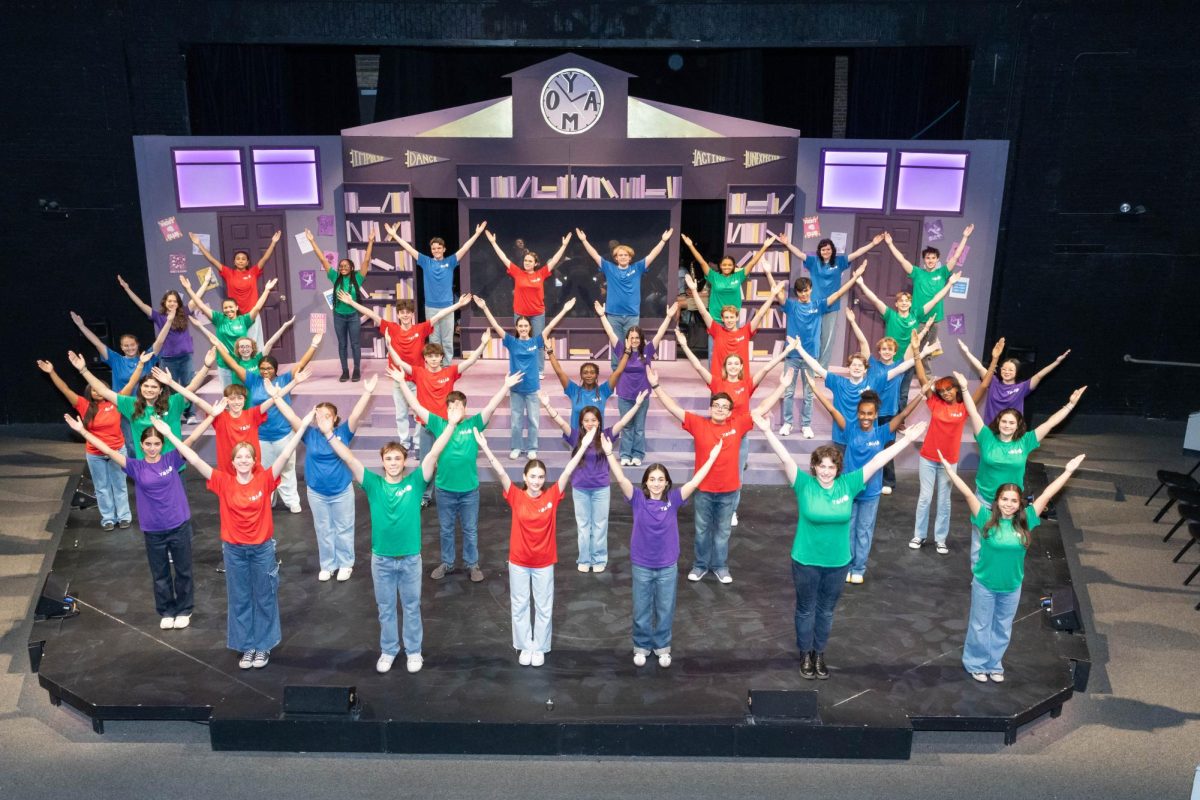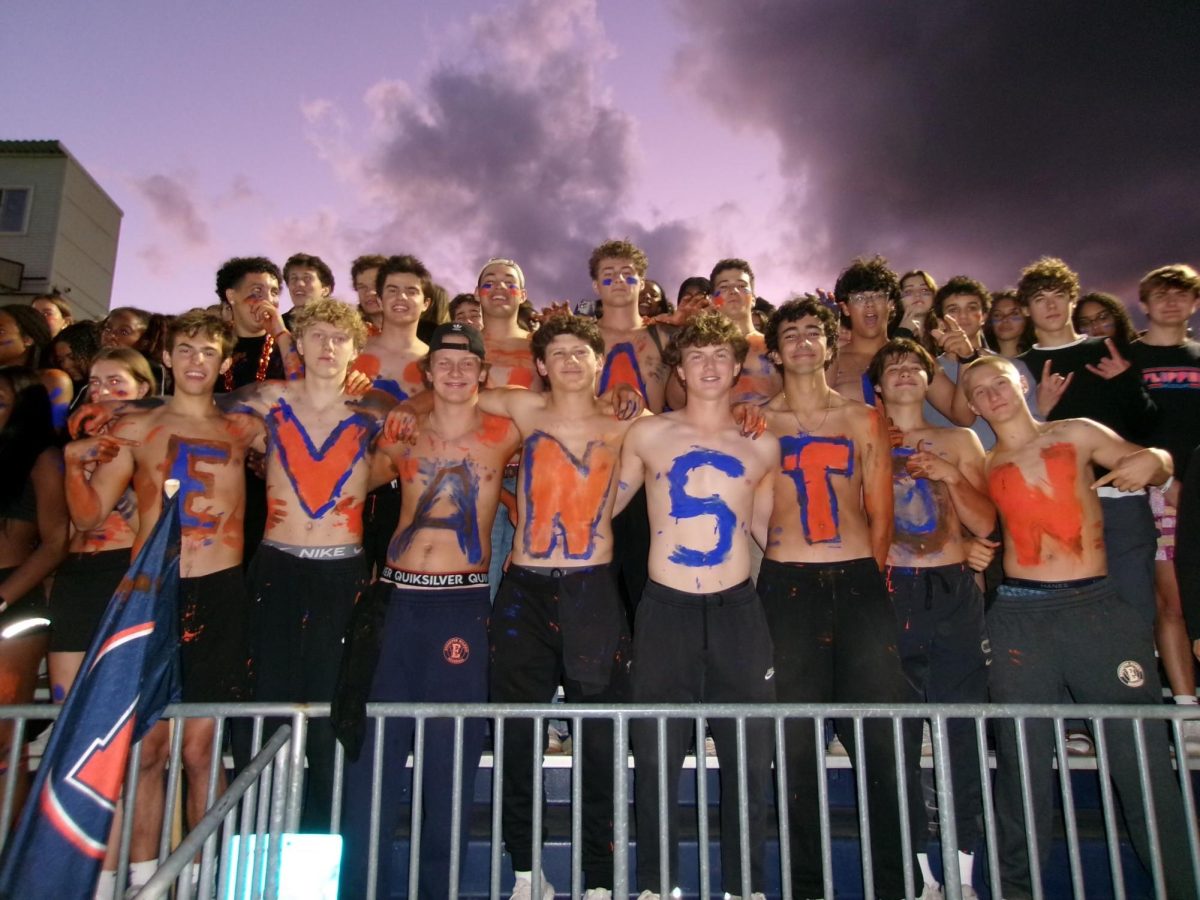The final countdown: exam experiences by subject
For the first time since 2019, finals are back at ETHS.
According to Superintendent Marcus Campbell, they are a “reset” on the summative assessments featured in many classes over the last five years. These assessments, however, were inconsistent across classes and subjects, and Campbell and the administration felt the need to standardize the process.
“Some disciplines were doing them, others were not. And so we decided to refocus,” Campbell stated.
This year, all classes will hold their finals during the week of Dec. 16. Some will offer more traditional exams, while others will assign project-based exams. A variety of finals was important to the administration.
“No one is taking a multiple-choice test across all of their courses. That’s not happening,” Campbell commented.
Current students at ETHS have never had to take finals before, and the administration believes that preparing for them will help students better recall the content of their classes, and, more importantly, teach them skills to help them beyond their time in the classroom.
“Developing good study skills and good project management skills and being able to collaborate across groups are exactly the skills you’re going to have when you get in the workplace, right when you get outside of ETHS,” Campbell remarked.
The return of finals has elicited mixed reactions throughout the student body.
“I’m nervous but not too nervous because I have a good understanding of most of the subjects,” said sophomore Iris Reardon.
“I’m a little bit scared,” admitted junior Jesse Dush-Hart
“I think it’s kind of annoying,” stated freshman Shawn Weiler. “I don’t see the problem with not having them.”
Despite the wide range of reactions, many students agree that finals will help prepare them for the future.
“It’s a good chance to review and recap everything I’ve learned, so I’ll do better on the AP test,” Dush-Hart said.
No matter how students feel about finals, it is important for them to stay organized, take advantage of resources, talk to teachers and study.
The word ‘math’ may stir many different emotions for each student and the phrase ‘math finals’ has the potential to prove even more daunting. As finals return to ETHS, math students and teachers alike are preparing for exams in a subject that is notoriously multi-faceted and complicated.
“My math class, literally today, has given me a packet for finals, and we’re going to be going over it in class,” said Bastian San Martin Otarola, a freshman at ETHS.
This experience was likely not uncommon according to Avani Khandar, an ETHS Precalculus, BC Calculus, and Geometry teacher. She’s been preparing with other teachers to administer finals for these math classes and is attempting to ensure that students have apt time and materials to review content.
“Students are gonna be given review materials for their final exam. For BC calculus it’s all on AP Classroom, and then for Geometry and AP Precalculus [the students] are gonna get review packets,” said Khandar.
Since BC Calculus is an AP class, teachers are using College Board website AP Classroom to assign practice questions to their students. Once a student is logged in to their AP Classroom account, they gain access to a variety of multiple-choice questions assigned by their teachers. These questions are modeled after the AP exam that students will take in May, and are often accompanied by videos explaining mathematical concepts. Review packets, according to Khandar, are also designed to review skills that students will need to use on their exam.
“I’m designating one or two class periods before final exams where students have time to ask questions and work on the packets,” she said.
Though Khandar plans on giving her classes ample time to review, questions remain about the actual structure of the math exams.
“I feel like [the math exam] might be structured differently from the other ones. I might do good or I might do bad,” said San Martin Otarola.
Khandar explained, however, that math teachers have generally decided on the structure for each exam.
“The structure is different. Geometry is almost all free-response questions. Precalculus is some multiple-choice, some free-response,” she said.
The type and level of math influence the genre of questions present on each exam. In Geometry, it’s often necessary for students to submit their answers in a free-response format, but in subjects like Precalculus and Calculus, multiple-choice is commonly used. Khandar also elaborated on how the exam will be delivered to students in each math class.
“All of the exams are gonna be on paper, except for BC. Some of us are doing paper and some of us are doing a trial run on AP Classroom,” she said.
In addition to offering practice questions, AP Classroom allows teachers to administer monitored tests and block other browser tabs. Khandar described that, though the structure of the BC exam may differ amongst teachers, there’s close collaboration between the teachers of each subject in terms of exam content.
“For Geometry, the Geometry teachers work together, and for Precalculus it’s the same. It was up to the teacher as to whether or not they wanted to participate in the process, but then everything’s hopefully being vetted by all of the teachers so that people can look over each other’s work and then come to some consensus in terms of what they want the exam to look like,” Khandar said.
While some math finals will be on paper and some online, featuring a variety of question styles, it’s clear that math teachers are working to make each exam cohesive. According to Khandar, one of the main goals of administering final exams is to prepare students for their post-high school careers. Additionally, the standards set by these finals will hopefully help students succeed and teachers stay organized.
“We have some standards in terms of what we all want our students to know. I mean, for the AP classes, the AP is the standard, but for Geometry you could teach all sorts of things, so that exam holds us to a standard and it also holds us to a timeline,” Khandar said.
From animation to accounting, the Arts & Innovation department features diverse topics that provide many possibilities for finals.
While ETHS teacher Claudia Buckley’s Intro to Child Development class will be taking a test, her Advanced Child Development and Intro to Teaching classes will both be making teaching portfolios. These portfolios will include things like lesson plans and self-evaluations.
Band Director Matthew Bufis will also be incorporating a self-assessment portion into his final for his symphonic band and wind symphony.
“[The final is] starting to look like a reflection of their own growth across the semester. A reflection of their practice patterns, their involvement and their extra supports,” Bufis explained.
Bufis’ freshman concert band class will be focusing on scales and keys, which they have been learning since the start of the school year. It is a more traditional version of a final.
“They learned this skill that we taught them across the semester, and the final exam is a demonstration of what they’ve learned”
While the concert band’s final is set, other classes, like Theater, will have the chance to be more imaginative with their exam. This year Theater 3/4 will be going in-depth with Shakespeare, while Theater 1 will be choosing and performing small six to seven minute scenes. According to theater teacher Timothy Herbert, doing these small scenes is important for new students to learn what theater is like.
“It’s their first time learning an extensive amount of lines and their first time staging their own scene and putting it up on its feet. So there are a lot of benchmark check-ins along the way,” he stated.
Photography teacher Elizabeth DuSold has changed the Photography final since Covid, with it now being a portfolio of photos. Before Covid, Photo 1 classes would complete a large-scale self-portrait project, which DuSold believes more accurately reflected the students’ skill level.
“They’re not shooting for the project, which doesn’t show their camera skills off. So I think the portfolio isn’t as accurate,” she reflects.
With many different varieties of finals present in the Arts & Innovation department, students’ creativity and skill are sure to be tested.
For history classes, many teachers give a multiple-choice section as well as several short-answer questions for their final. This format is similar to many of the English exams, the key differences being the subject matter and writing section length. Outside of formatting, history exams are also similar to English ones in that there’s been strong teacher collaboration within the history department.
“There’s been a lot of strong collaboration between teachers of shared courses. So for example, all of the civics teachers who opted in to meet, we discussed our wish lists of what a final exam would look like for students in civics class, what skills and contents important for an exam, and then we had to come to a consensus to design a common assessment so that all civic students are actually taking the exact same test, same components,” said Carly Crittendon, a civics, U.S. history, and emergent multilingual learner U.S. history teacher.
History teacher Kate Iverson has focused on giving students time to review and has given students tests and quizzes that are similarly formatted to the final she will give her students.
“If we’ve had an assessment– because part of our final will be multiple choice– I’ve tried to make sure that we have multiple-choice questions,” Iverson said.
Despite this practice and the increased emphasis on subject matter, there’s still an element of stress that comes with the history exams and may also apply to other finals.
“One thing that might affect students’ mental health is the pressure around being assessed on a one-shot exam. And often historians are also pressured to get it right and think about what the facts are. So in a way, you are preparing and developing some disciplinary literacy in history when you demonstrate your knowledge on the test,” explained Crittendon.
Analyzing history requires a unique mindset, which will likely result in a unique final exam experience. Certainly, the collaboration between history teachers to craft a test that is representative of the skills and information internalized in class will set the stage for student success.
In English classes, exams will have both a grammar-focused multiple-choice section and an on-demand long-form writing section. To prepare, English teachers are giving students assessments that reflect the formatting of their class’ final starting at the beginning of the school year. Christine Souferis, a sophomore English teacher, explained how her students have done lots of on-demand writing and reflections that will help set them up for success for their final.
“The final is going to be a written on-demand essay on the skills that we’ve been working on all year… Whether they get the narrative or the analysis prompt, they’ve been exposed to it multiple times throughout the semester. They’ll be familiar with the writing process by the final.”
Though teachers are doing their best to make their students feel prepared and confident about exams, some students have worries about the on-demand writing aspect. Chiara Canay, a sophomore, expressed her thoughts.
“I have mixed feelings about the English final,” she said. “On one hand, I am excited to show what I learned in the semester, but I am also nervous since we will be under pressure.”
Fortunately, sophomore English teachers are working hard to alleviate some of this pressure by presenting similar finals in each class. For the longer-form writing section, prompts may vary but the exam will be focused on either narrative or analysis skills. Souferis commented on how different classes’ finals will compare to each other and what students can expect.
“All sophomore English teachers are supposed to be giving the same prompt. So if it’s narrative, it has to be narrative, if it’s analysis, it has to be analysis. The actual wording of the prompt doesn’t need to be exactly the same, although they’re pretty similar and will have to assess the same skill.”
John Kennedy-Farrell, a sophomore and junior English teacher, explained how the finals for his classes will differ slightly based on grade level.
“Each semester’s exam will be different, based on the learning that we have done in class, and not every class will have the exact same exam,” Kennedy-Farrell said. “My junior exam will have a multiple-choice grammar component, and then it will also have a critical reading component, using an excerpt from U.S. literature.”
The section focused on grammar is a component of most English finals. This is meant not only to test students’ understanding of skills they learned during the first semester but also to serve as preparation for standardized testing such as the SAT and ACT.
“It’ll be the narrative or the analysis on-demand, and then they’ll have to answer an SAT-style grammar portion, which is really to get [sophomore students] ready for next year when they’ll be taking those standardized tests,” Souferis said.
In this digital age, some English teachers are moving back to physical finals, asking their students to dust off their pencils and paper. This can help steer students away from assistance from AI programs like ChatGPT and keep them focused so they can show their best work.
“I was going back and forth on whether to have them type the on-demand or actually do it on paper because we could do [either], but I think to eliminate some of those technological issues and with temptations with AI and other things, I’m going to have them actually write it on paper,” said Souferis. “[This] will eliminate distractions and other issues that could come up.”
Though students may have to write for some of their other exams, English is absolutely going to be one of the most writing-heavy subjects. Combined with the grammar-based multiple choice questions, English finals across grades will most likely make for a familiar yet challenging exam.
When people think of a physical education class, they probably imagine playing sports, running laps and lifting weights; taking tests likely doesn’t come to mind. However, with every class at ETHS required to include a final, tests are now a part of the PE curriculum.
Most PE finals will look similar to finals in many other subjects, consisting of a multiple-choice and true/false format. But unlike most other classes, they probably won’t cause students too much stress. Lisa Almageur, who teaches blender, co-ed and all-female blender PE classes, described her classes’ finals as “easy-peasy.”
But not all PE classes will follow this exact format.
“For senior leaders it’s a lot more scenario-based, where they’re showing that they understand how to apply what they learned rather than just regurgitate what they learned,” explained PE teacher Luella Gesky.
For many ETHS students, the low-stress finals actually seem like an unnecessary burden.
“Unless it’s for special cases, like life-guarding, I don’t see why PE finals should exist,” expressed senior Dante Wilson.
“To me that just sounds like a time-waster,” agreed senior Michael Dickman.
Others believe that different types of finals would be worthwhile.
“Three out of four years I’ve taken classes based in the weight room, and I think that a productive PE final would be designing a workout that targets all parts of the body,” explains Chris Fargo.
Whatever format in which they appear, Gesky defends finals for all classes.
“I think it holds teachers accountable to making sure all students have similar experiences and learning the same content,” she stated. “And it helps students get used to being accountable for the stuff they’ve learned beyond the two weeks of the unit,”
During the weeks leading up to finals, science students are anticipating a variety of different styles of exams. Since ETHS offers such a wide array of science courses, the way each final will be administered depends mostly on the type and level of the course.
Physics teacher Adam Held explains how he’s preparing his class for the final.
“We have just one day of study formally in class. I’ve given [the students] a study guide, and they also have all their old quizzes and homework assignments,” he said.
In terms of the actual structure of the exam, students may be required to complete a lab, answer questions or do a mix of both.
In biology and chemistry teacher Bill Farmer’s biology class, students will take a test with 40 multiple-choice questions and five free-response questions, while students in his chemistry class will do a lab and answer questions, some of which will relate to the lab. The purpose is “so that students can apply their scientific knowledge to explain a phenomenon,” Farmer explained.
While finals are a stressful prospect for many students, some science teachers claim that solidifying their knowledge of the whole semester’s material will be beneficial to students going forward.
“I think one thing that’s unique with science, at least physics, is the stuff you learn in unit one, for example, you need to know it for unit three. … In physics, if you don’t have a firm grasp at the beginning of the year, it can affect your later performance, because you need those skills,” Held explains.
Farmer adds that finals will help students beyond the rest of the school year.
“Studying for these larger scope exams helps students to develop effective study strategies to build long-term knowledge in a variety of content areas,” he remarked.
While finals in other departments will be completed within the 90-minute period, some science classes doing labs may have to work outside of the allotted time.
“Often [lab practicals] need to be completed prior to the 90-minute exam time because of logistical constraints with doing a lab as an exam,” Farmer remarked.
In AP science courses, regardless of the format, finals serve one clear purpose: “prepare students to be successful on the cumulative knowledge needed for the AP exam,” Farmer stated.
The science finals, whether they’re a lab, a multiple-choice or free-response test, may seem intimidating, but teachers across the science department insist that they will help students throughout the rest of this year’s courses and will build habits that will help them in the future.
Your donation will support the student journalists of the Evanstonian. We are planning a big trip to the Journalism Educators Association conference in Nashville in November 2025, and any support will go towards making that trip a reality. Contributions will appear as a charge from SNOSite. Donations are NOT tax-deductible.







